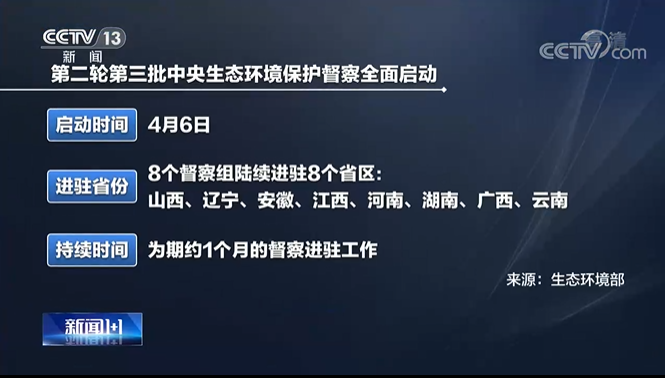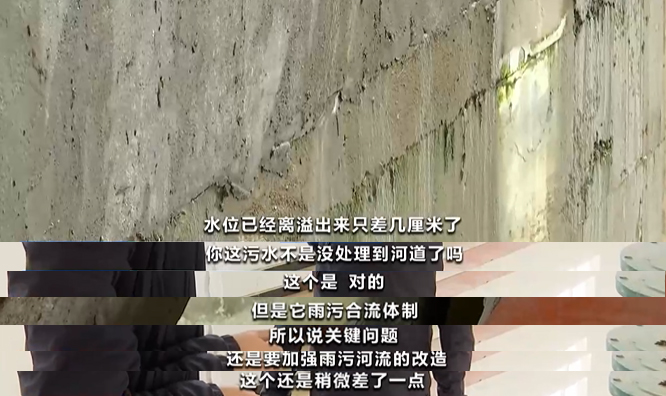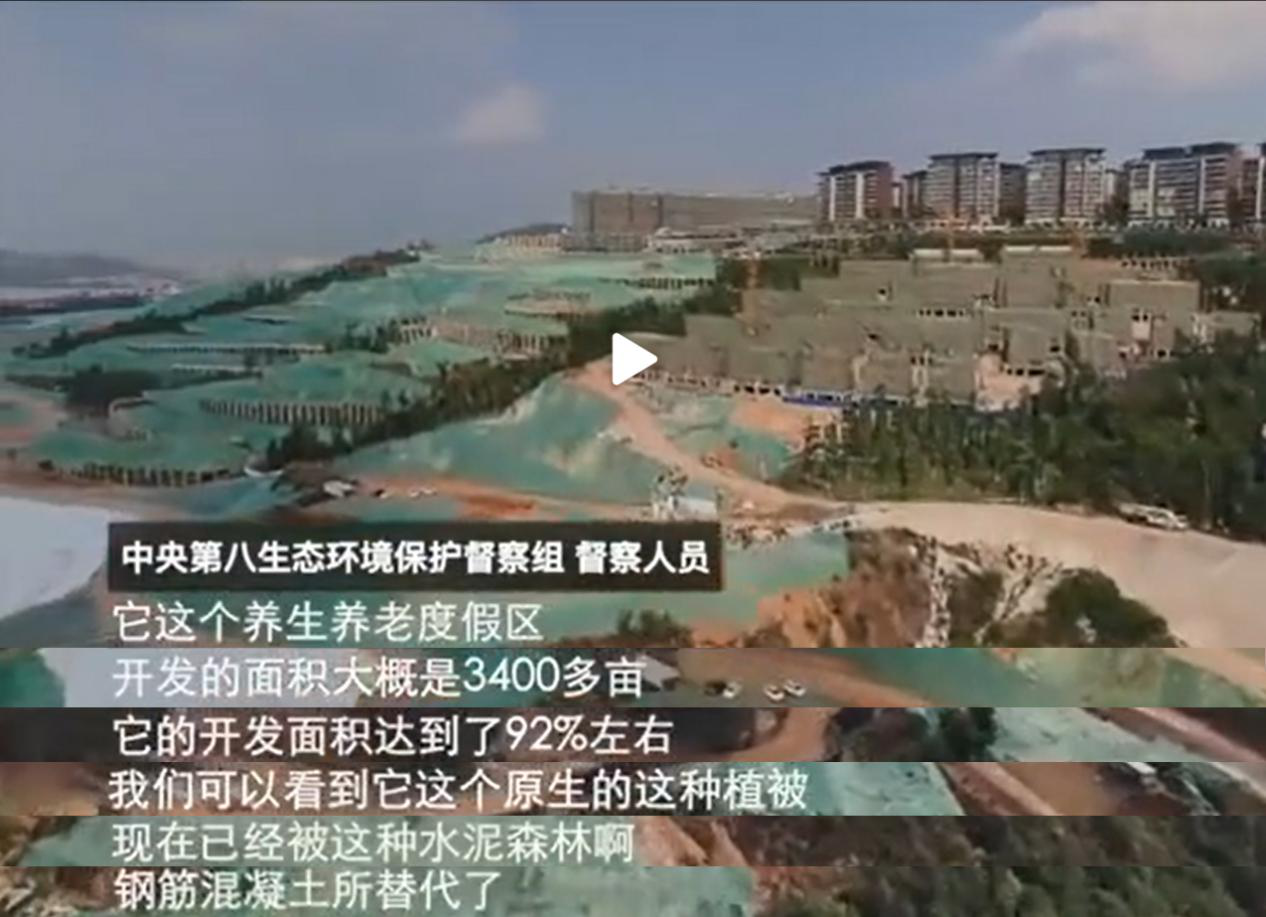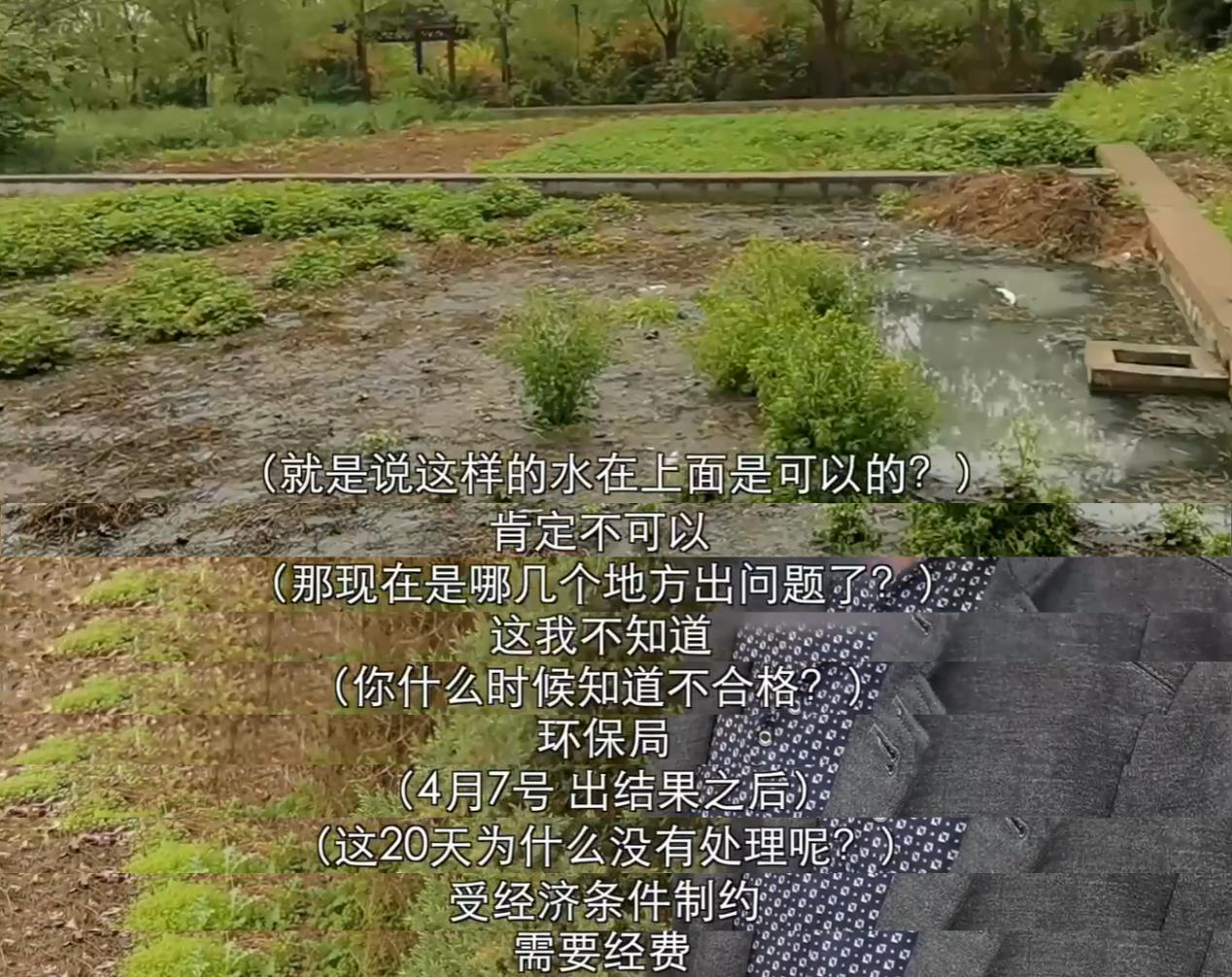Typical cases of central eco-environmental protection inspectors are open to the public.
CCTV News:After a lapse of seven months, the second round and the third batch of central eco-environmental protection inspectors have been stationed in eight provinces and autonomous regions such as Shanxi and Liaoning for a month. Whether the local authorities strictly control the blind launching of the "two high projects" with high water consumption and high energy consumption is one of the key concerns of this environmental protection inspector.

On May 6th, the Central Eco-environmental Inspector Group publicly reported the typical cases of ecological damage and environmental pollution in eight provinces and regions, including Shanxi, Liaoning, Anhui, Jiangxi, Henan, Hunan, Guangxi and Yunnan. On the internet, topics such as "farmers dare not use their own toilets" and "the website of the Central Commission for Discipline Inspection exposes the chaos in the development of Dianchi Lake" have attracted much attention from netizens.
In the typical cases publicly notified by the third batch of central eco-environmental inspectors in the second round, some problems were pointed out in the first round of inspections in 2016, and some problems were once again required to be rectified when the inspectors "looked back" in 2018.
In the end, whether the ecological environment is intractable or the rectification efforts are not in place, reporters came to Nanchang, Jiangxi.Kunming, Yunnan,Inspectors from Sanmenxia, Henan and other places have a look at the scene.
Nanchang, Jiangxi: the construction and transformation of domestic sewage pipe network is lagging behind
In Nanchang City, Jiangxi Province, the inspector group found that the construction and transformation of domestic sewage pipe network in Nanchang City was lagging behind, and a large amount of domestic sewage was not collected and discharged directly into urban rivers, lakes and Ganjiang River. The water pollution of urban rivers and lakes in some urban areas of Nanchang City is serious, and the black and odorous water bodies show a rebound trend. The water quality of Ganjiang River in Nanchang City is mostly inferior to Grade V.

In Nanchang, where the water system is developed and the rainfall is abundant, a large amount of domestic sewage cannot be effectively collected, and rainwater is mixed into the sewage pipe network, which becomes a huge burden for the sewage treatment plant. Even if it is operated at full capacity, the sewage that cannot be collected will still overflow into the river.
In 2018, the central environmental protection inspector "looked back" and pointed out that Nanchang’s promotion of sewage treatment and pipe network construction was lagging behind. The inspector group read the situation of Nanchang city and found that there were as many as 12,300 old pipe networks with 415.85 kilometers in the old city, such as rupture, wrong connection, disconnection, deformation and corrosion. In 2020, the sewage collection rate in the built-up area of Nanchang City is only 50.78%.
The inspector group believes that Nanchang city has not paid enough attention to the rectification work of the central ecological environmental protection inspector. There is a lack of systematic thinking and overall planning in the construction and renovation of domestic sewage pipe network, and the determination and standards are not high, which leads to the long-term failure to completely solve the environmental pollution problem of domestic sewage.
Kunming, Yunnan: The so-called "development around the lake" has caused ecological destruction in Dianchi Lake.
In Kunming City, Yunnan Province, the inspector group found that the Changyaoshan area on the south bank of Dianchi Lake was eroded by real estate development projects, and some projects directly occupied Dianchi Lake Reserve and occupied the ecological space of Dianchi Lake. As an important part of the ecosystem of forest, field and grass in Dianchi Lake, more than 90% of Changyao Mountain has been developed, and now it has become a "cement mountain", and its ecological function has basically lost.

(Source: People’s Daily)
The problems exposed in Dianchi Lake are not the first time. In July 2016, the first round of central eco-environmental protection inspectors pointed out that the relevant projects built by Nuoshida Group invaded the first-class protection zone of Dianchi Lake. However, Jinning District and Nuoshida Group not only failed to learn the lesson seriously, but intensified their efforts, building an asphalt road in the first-class protection zone of Dianchi Lake, and successively developing and constructing real estate projects in the restricted construction zone of the second-class protection zone of Dianchi Lake.
The inspector group believes that Kunming City has not worked out the Dianchi Lake protection plan according to the requirements of the Regulations on the Protection of Dianchi Lake in Yunnan Province, resulting in the long-term lack of "regulations" to follow, and the phenomenon of "development around the lake" and "development by attaching lines" in Dianchi Lake has intensified. The relevant functional departments of Yunnan Province did not perform their duties in place, and failed to point out and stop the illegal development and construction problems in Changyaoshan and other areas of Dianchi Lake in time.
Sanmenxia, Henan Province: Sewage overflows in the "demonstration village", and farmers dare not use their own toilets.
The Central Fifth Ecological Environmental Protection Inspector Group inspected in Henan and found that some rural sewage treatment stations were shut down for a long time, which led to the rural sewage being blocked in the "last mile".
Sewage overflowed into the river, and garbage floated in Hanoi. Farmers built toilets themselves but dared not use them. This happened in Hekou Village, a "national civilized village", and Huocun Village, a "beautiful countryside demonstration village" in yima city East District Office, Sanmenxia City, Henan Province. The monitoring report issued on April 7 showed that the drainage of the wetland was not up to standard. Why did the sewage still overflow into the river when the inspector team came to the scene on April 24? Zhang Jianwu, deputy director of Hekou Community Neighborhood Committee, said that due to economic conditions, there is no cost.

(Source: Xinhua News Agency)
The inspectors pointed out that rural sewage treatment should not emphasize construction but neglect management, and sewage treatment facilities must be operated effectively. It is reported that as of press time, the offices where the two villages are located sent a "description of the situation" to the reporter for the existing problems, and expressed their active rectification.
There is no room for "procrastination" or "superficial efforts" in environmental rectification. The inspector group will further investigate and verify the relevant situation and do the follow-up inspection work as required.